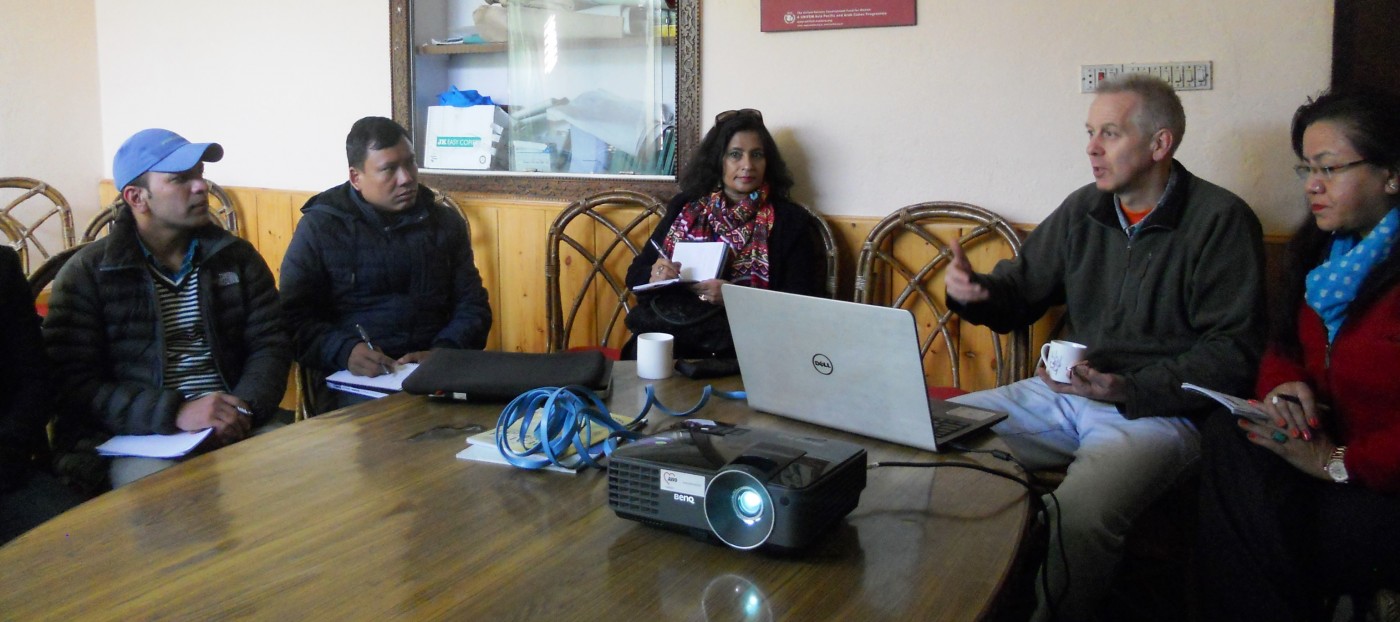 Bournemouth University has been working on a small research project with Pourakhi, a voluntary organisation which helps female migrant workers returning to Nepal, for over a year. Pourakhi advocates for the rights of women migrant workers. Last week they invited me to present a workshop session on Academic
Bournemouth University has been working on a small research project with Pourakhi, a voluntary organisation which helps female migrant workers returning to Nepal, for over a year. Pourakhi advocates for the rights of women migrant workers. Last week they invited me to present a workshop session on Academic  Writing & Publishing, this morning I run such workshop. The content of the workshop is based on years of experience of running similar workshops at Bournemouth University, many Higher Education colleges across Nepal and a COST-funded workshop in Malta a few years ago. The eight people (staff and volunteers) who attended the workshop were generally inquisitive and keen to get their work into print. Most of the paper we have written about aspects of academic writing and the publishing process have been published in Open Access journals. [1-8]
Writing & Publishing, this morning I run such workshop. The content of the workshop is based on years of experience of running similar workshops at Bournemouth University, many Higher Education colleges across Nepal and a COST-funded workshop in Malta a few years ago. The eight people (staff and volunteers) who attended the workshop were generally inquisitive and keen to get their work into print. Most of the paper we have written about aspects of academic writing and the publishing process have been published in Open Access journals. [1-8]  Therefore, we can easily give workshop attendees copies and/or give them the links to the online version on the web.
Therefore, we can easily give workshop attendees copies and/or give them the links to the online version on the web.
Prof Edwin van Teijlingen
CMMPH
References:
- Hundley V, van Teijlingen E, Simkhada P (2013) Academic authorship: who, why and in what order? Health Renaissance 11 (2):98-101 www.healthrenaissance.org.np/uploads/Download/vol-11-2/Page_99_101_Editorial.pdf
- Pitchforth E, Porter M, Teijlingen van E, et al. (2005) Writing up & presenting qualitative research in family planning & reproductive health care, J Fam Plann Reprod Health Care 31(2): 132-135.
- Simkhada P, van Teijlingen E, Hundley V. (2013) Writing an academic paper for publication, Health Renaissance 11 (1):1-5. www.healthrenaissance.org.np/uploads/Pp_1_5_Guest_Editorial.pdf
- van Teijlingen, E., Ireland, J., Hundley, V., Simkhada, P., Sathian, B. (2014) Finding the right title for your article: Advice for academic authors, Nepal J Epidemiol 4(1): 344-347.
- van Teijlingen, E., Hundley, V., Bick, D. (2014) Who should be an author on your academic paper? Midwifery 30: 385-386.
- van Teijlingen, E, Simkhada PP, Rizyal A (2012) Submitting a paper to an academic peer-reviewed journal, where to start? (Guest Editorial) Health Renaissance 10 (1): 1-4.
- van Teijlingen, E, Simkhada. PP, Simkhada, B, Ireland J. (2012) The long & winding road to publication, Nepal J Epidemiol 2(4): 213-215 http://nepjol.info/index.php/NJE/article/view/7093/6388
- Hall, J., Hundley, V., van Teijlingen, E. (2015) The journal editor: friend or foe? Women & Birth 28(2): e26-e29.
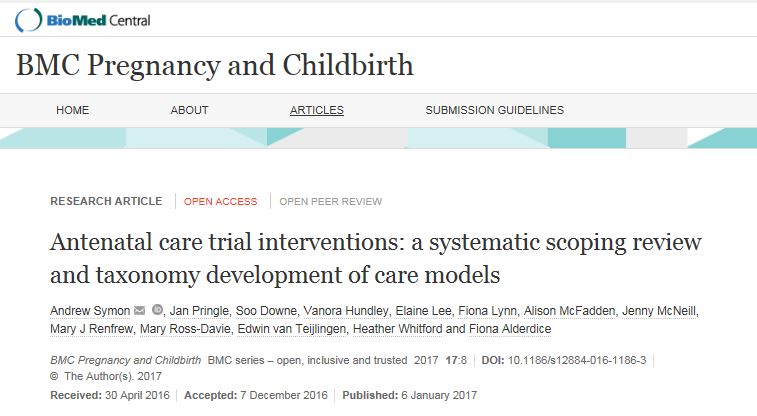
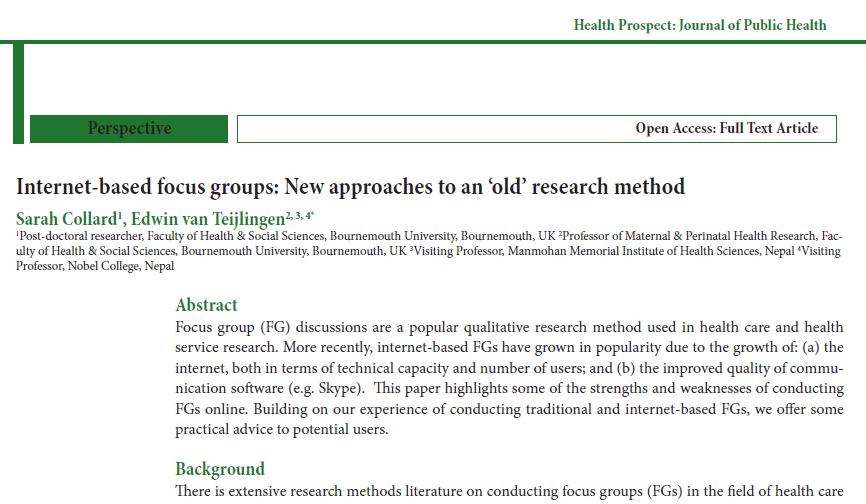

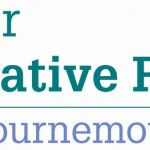
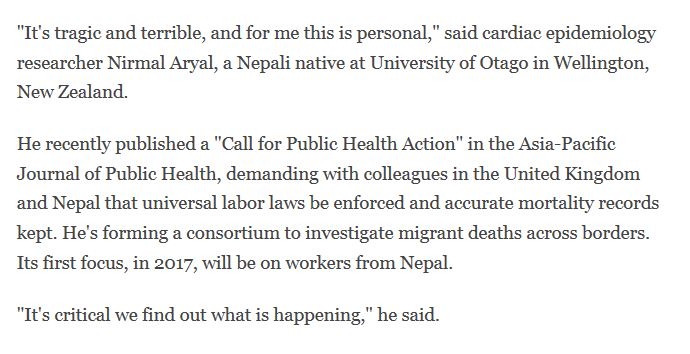
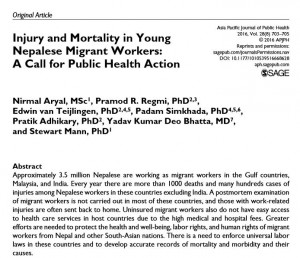
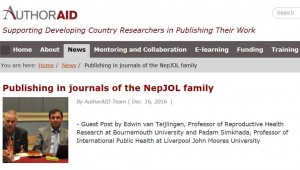
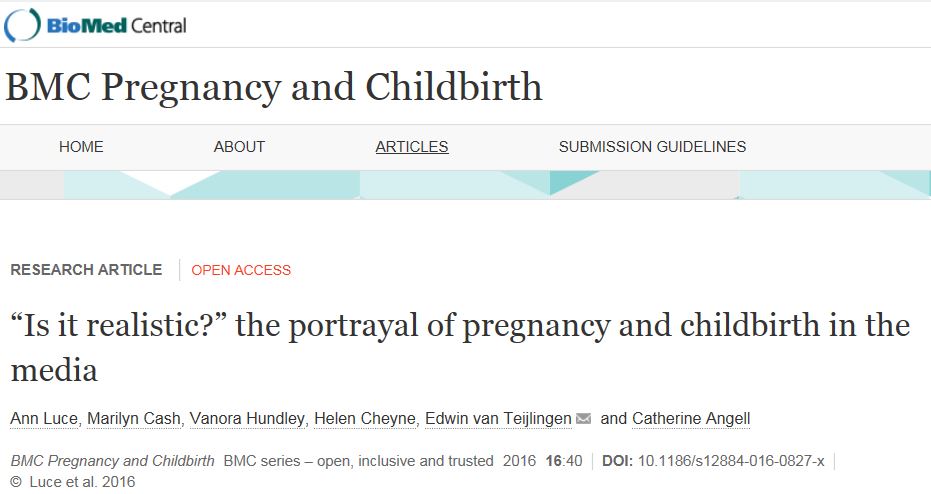
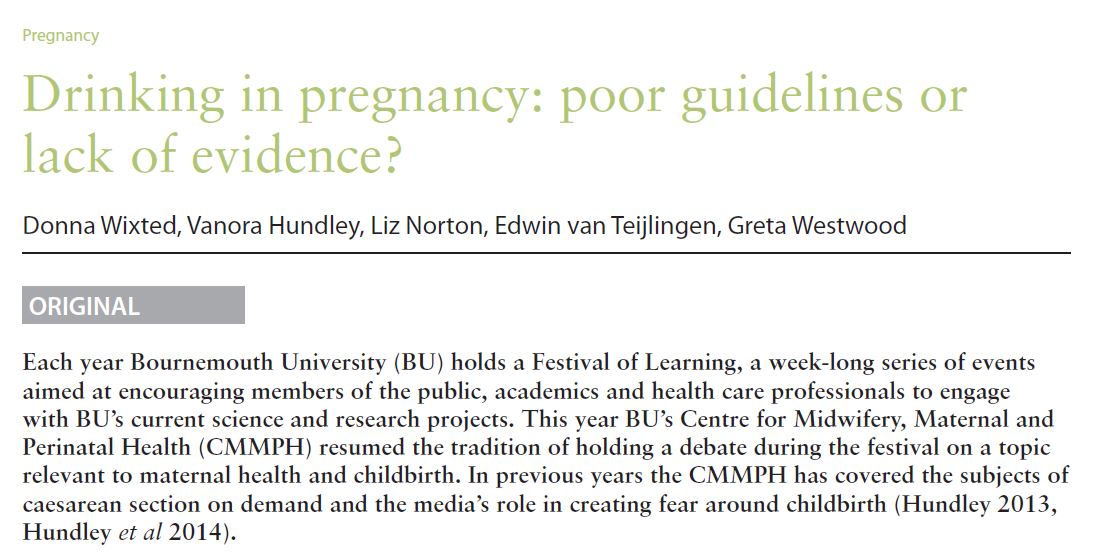
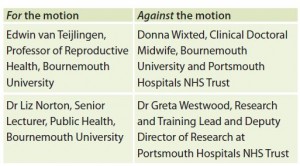

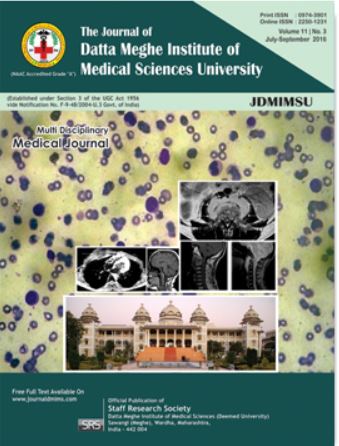
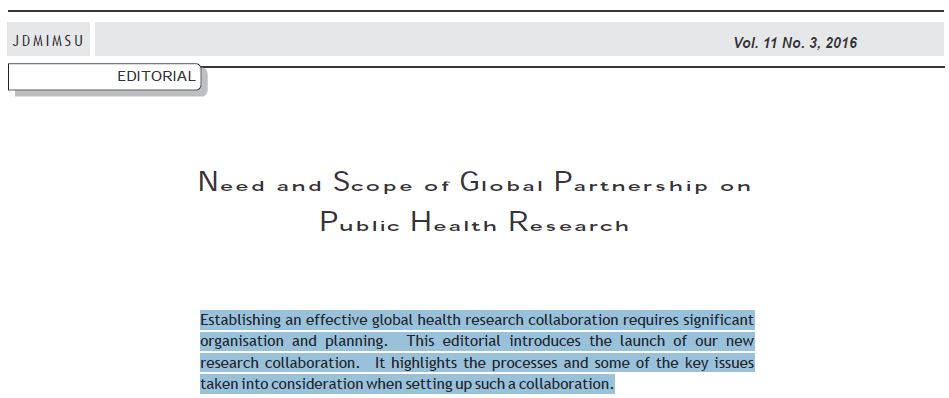
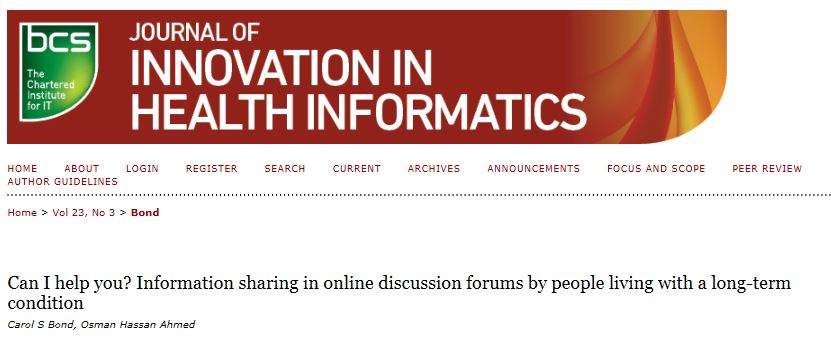

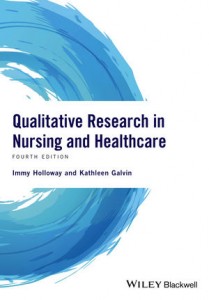

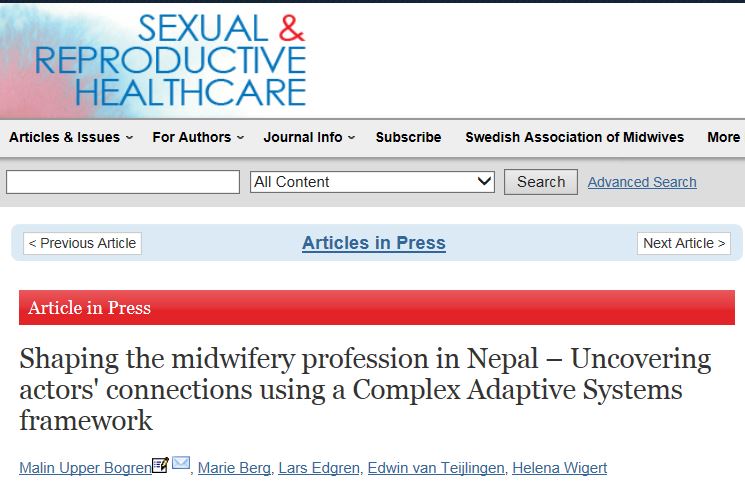
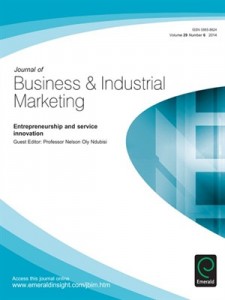
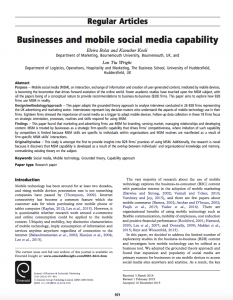
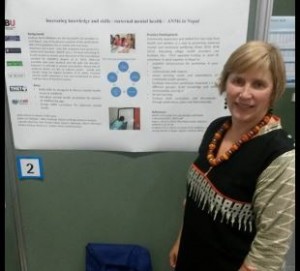
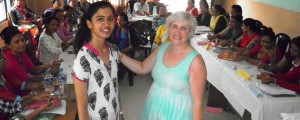












 From Sustainable Research to Sustainable Research Lives: Reflections from the SPROUT Network Event
From Sustainable Research to Sustainable Research Lives: Reflections from the SPROUT Network Event REF Code of Practice consultation is open!
REF Code of Practice consultation is open! BU Leads AI-Driven Work Package in EU Horizon SUSHEAS Project
BU Leads AI-Driven Work Package in EU Horizon SUSHEAS Project Evidence Synthesis Centre open at Kathmandu University
Evidence Synthesis Centre open at Kathmandu University ECR Funding Open Call: Research Culture & Community Grant – Apply now
ECR Funding Open Call: Research Culture & Community Grant – Apply now ECR Funding Open Call: Research Culture & Community Grant – Application Deadline Friday 12 December
ECR Funding Open Call: Research Culture & Community Grant – Application Deadline Friday 12 December MSCA Postdoctoral Fellowships 2025 Call
MSCA Postdoctoral Fellowships 2025 Call ERC Advanced Grant 2025 Webinar
ERC Advanced Grant 2025 Webinar Update on UKRO services
Update on UKRO services European research project exploring use of ‘virtual twins’ to better manage metabolic associated fatty liver disease
European research project exploring use of ‘virtual twins’ to better manage metabolic associated fatty liver disease